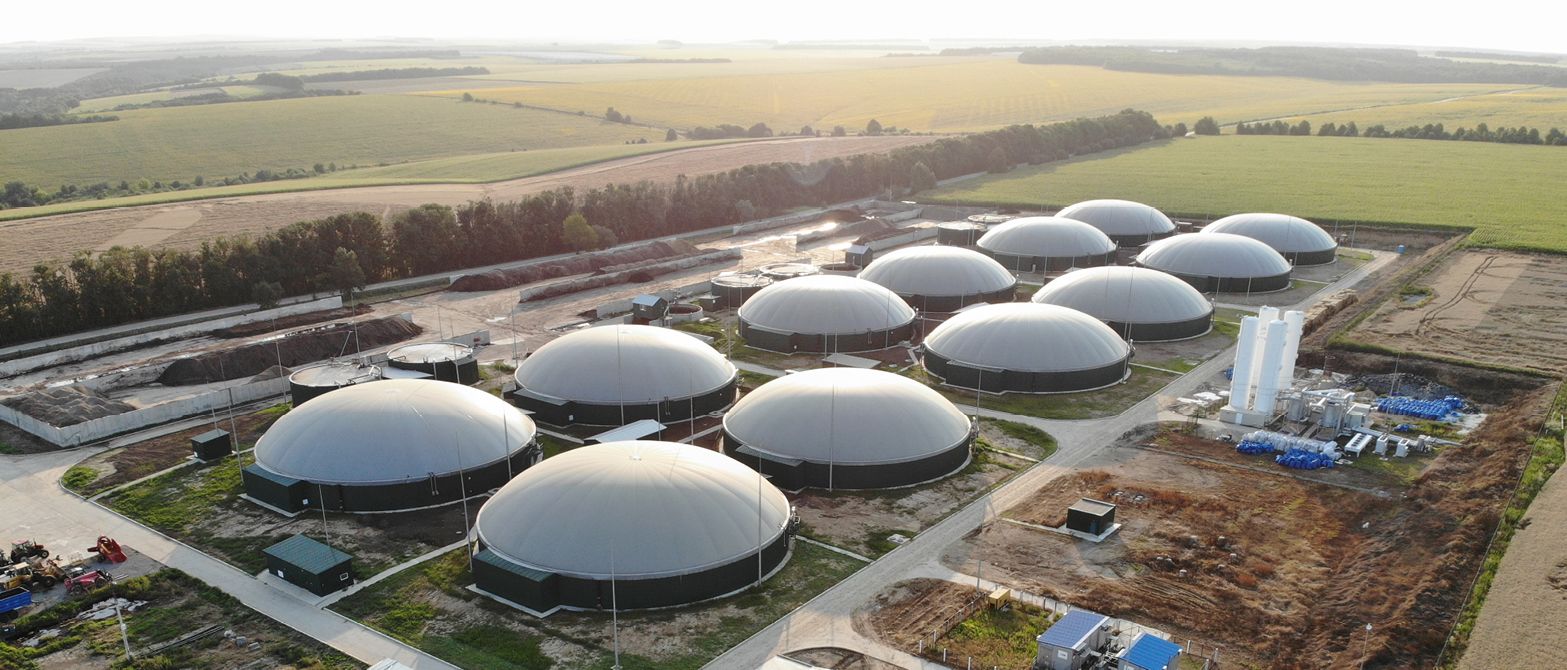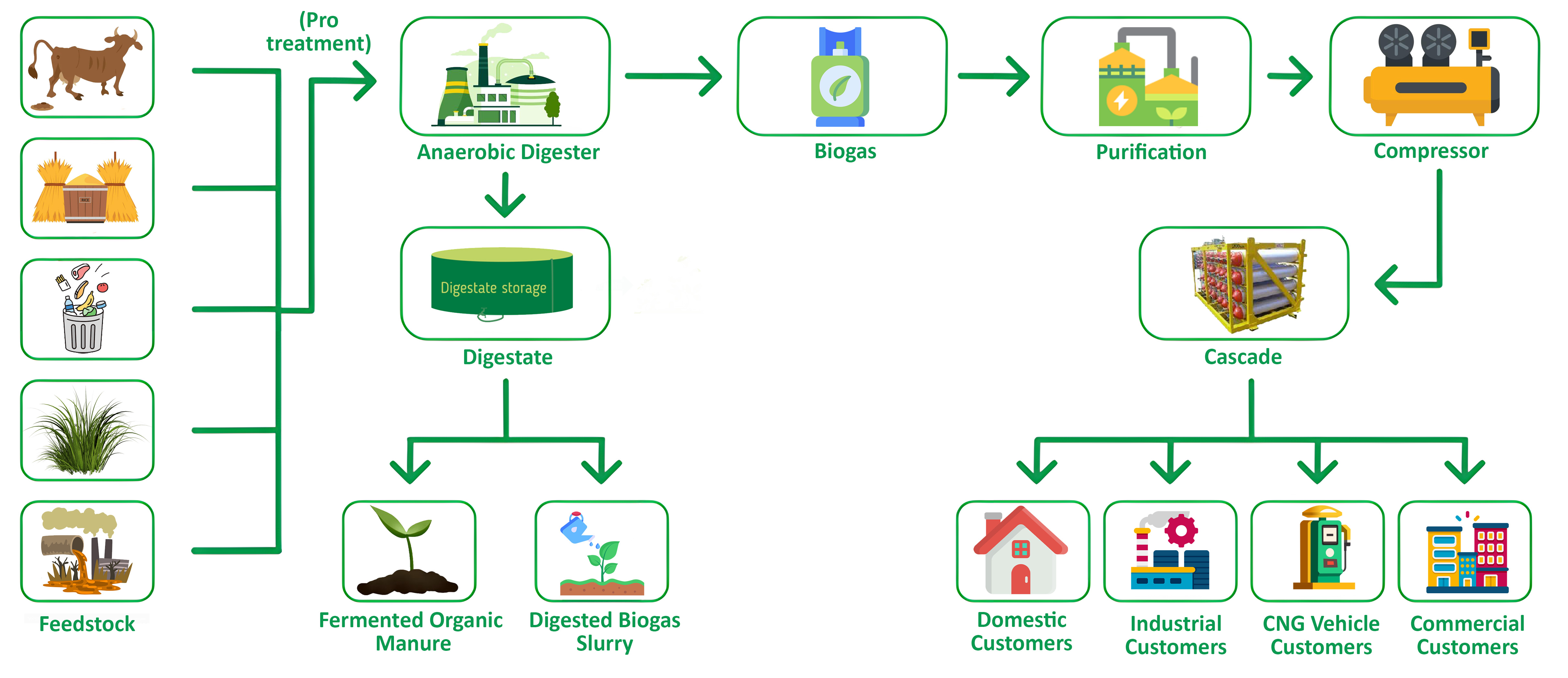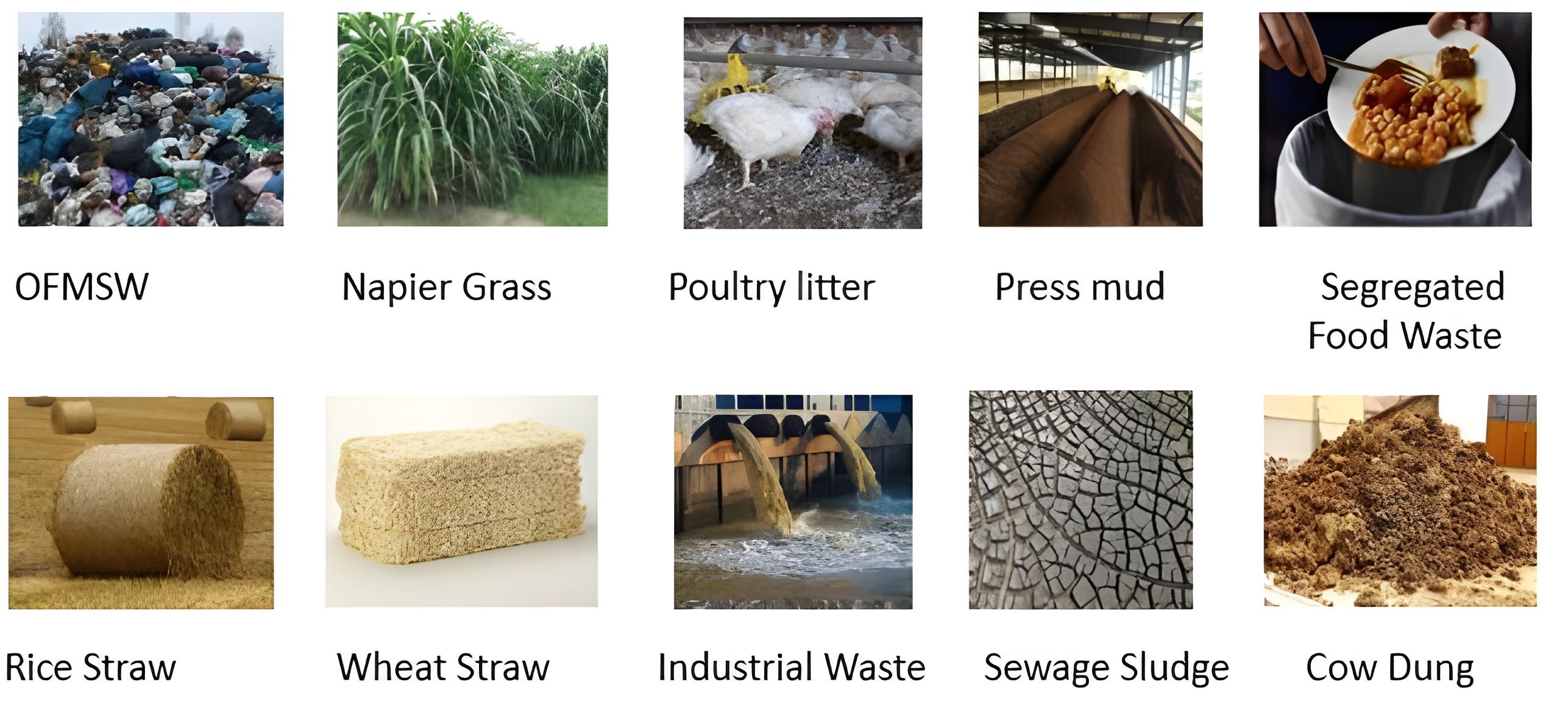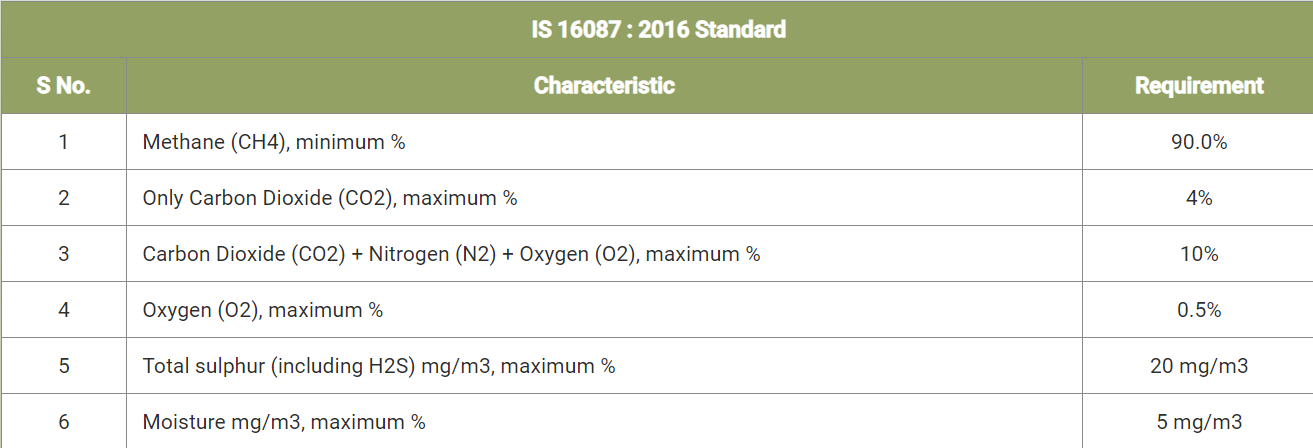EPC project for Compressed Biogas (CBG) Plants
At Enviropol, we are proud to be at the forefront of India's transition to renewable energy solutions. Under the Government of India's SATAT initiative (Sustainable Alternative Towards Affordable Transportation) Oil and Gas Marketing Companies like IOCL, BPCL, HPCL, GAIL and IGL have invited Expression of interest (EoI) to procure CBG from potential entrepreneurs for further marketing, hence Compressed Biogas (CBG) is becoming a powerful alternative to conventional fuels.

By harnessing waste streams such as municipal solid waste (MSW), Spent Wash, press mud, agricultural residues, Napier Grass and cow dung, CBG offers a cleaner, more sustainable energy source while reducing our reliance on expensive fossil fuel imports. Our Engineering, Procurement, and Construction (EPC) model delivers fully integrated CBG plants that help businesses, industries, and municipalities convert waste into energy efficiently and sustainably.
With over 20 years of industry experience and 400+ successful installations across the globe, Enviropol delivers turnkey EPC solutions that ensure seamless integration with your operations, from concept to commissioning. Our expertise in biogas technology, combined with robust project management, guarantees the successful deployment of CBG plants that align with your sustainability goals and regulatory compliance needs.
What is a Compressed Biogas (CBG) Plant?
A Compressed Biogas (CBG) plant is a specialized facility that converts organic waste—such as agricultural residues, press mud, food processing by-products, and municipal solid waste—into compressed biogas, a clean, renewable gas fuel. The process involves anaerobic digestion, where organic matter is broken down in the absence of oxygen, producing biogas rich in methane CH4. The biogas is then purified to remove impurities like carbon dioxide and hydrogen sulphide, and compressed for use in energy generation, transportation fuel, or industrial applications.

Key Benefits of CBG:
- Reduces imports of natural gas, helping in energy security.
- Cleaner and greener than fossil fuels, reducing carbon emissions.
- By-product: Organic manure (solid and liquid) enhances soil health.
- Financially viable under government-backed buy-back schemes.


